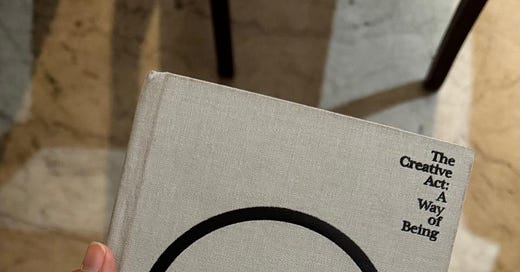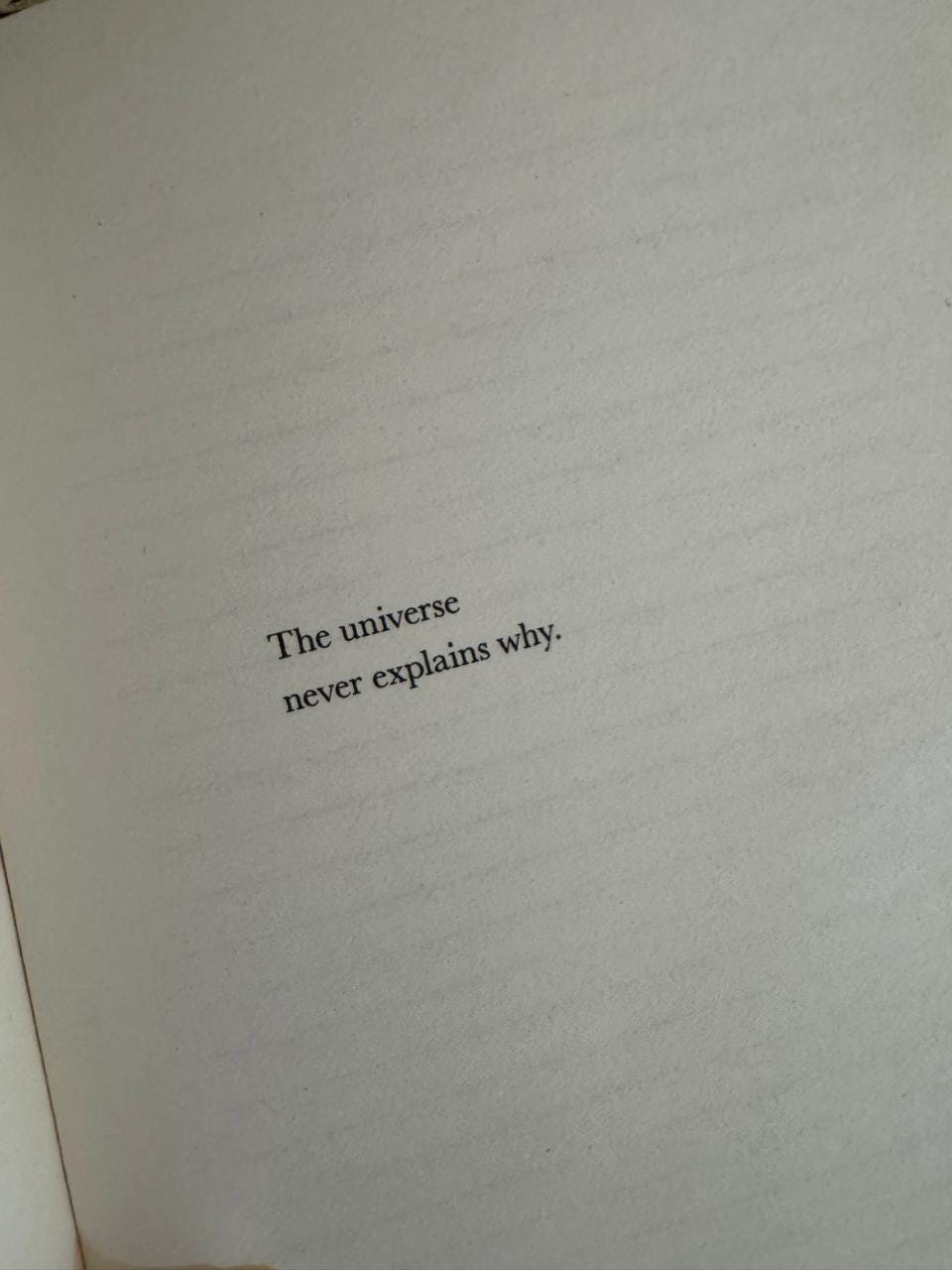I finished this book in December, and if you’ve been following me for some time, you might know that I’ve been obsessed with it. I was so obsessed enough that I gifted it to two of my friends for their birthdays because our conversations reminded me of something Rick said in his book. I'm excited to see what they think of it.
Coming back to the topic—The Creative Act—I adore how Rick cultivates the idea that creativity is a lifestyle, not just a job or a hobby.
I have a habit of deeply researching an author while reading their book. Understanding their past and their thought process helps me connect with them better. Usually, I stop after learning a little, but not with Rick. He has this almost spiritual, saint-like aura about him. I specifically remember running on a treadmill while listening to his podcast, where he talked about how his house caught fire. His first thought was about his family, and his second was that it was okay if he died because the book was finished—it contained everything he had to offer to the world. My jaw dropped. I was completely devoted to finishing the book because if someone values their work to this extent, I had to know why.
He did a lot of podcasts when his book was published, which, of course, is a PR move. Personally, I don’t like the feeling of someone trying to sell me something, but Rick… exactly.
The most amusing part of this book is its structure. You can open it to any chapter, and there’s a high chance you’ll relate to it. While trying to understand why, I learned that Rick didn’t sit down and write the book in the traditional sense. Instead, it was created from transcripts of interviews he gave while sitting on his porch. These were later edited multiple times to remove all the fancy words added during copywriting, preserving the book’s original essence. Nothing about this book is conventional—not even the writing process.
I’ve already written two newsletters on a few topics from the book, and honestly, I could write fifty more because I think this book is gold.
A few of my favorite lines:
"Powerful reactions often indicate deeper wells of meaning."
"Failure is the information you need when you are going wrong."
"The worst thing that has happened to you is the worst thing that has ever happened—doesn’t matter if it’s just a scratch on the car. That’s why spoiled children cry. Their ability to be resilient was never challenged. Some develop resilience through depression."
Rubin frames creativity as something spiritual and universal—available to everyone, not just musicians or painters. Whether you’re a writer, entrepreneur, musician, or chef, his insights are valuable. Instead of telling you how to create, he helps you feel more creative. It’s more about mindset than mechanics.
I distinctly remember a friend telling me he felt like painting while reading the book. That, to me, meant the book was a success.
Rick could have easily used his famous clients—Jay-Z, Adele, Kanye West—to promote his book, but he didn’t mention them. He believes that the book will find those who are looking for it.
If you’re a creative who feels stuck or uninspired (me, currently), an artist seeking a deeper connection with your work, or someone who just wants to cultivate a creative mindset—this book is for you.
Because as humans, there’s nothing we crave more than hope and love to sustain us in the long run. And that’s exactly what I felt while reading it.





